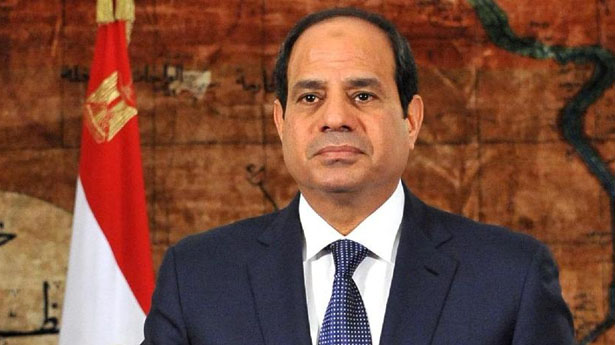Prez Sisi: "Sinai Under Full Control of Egypt"...Really?
Egypt's President Sisi

NEW DELHI: The mysterious crash of a Russian airliner over Egypt that killed all 224 people on board has brought the world’s attention to terrorism, and the role of the Islamic State, in the North African country.
Although little is known about what caused the crash as investigations are still underway, a local outfit affiliated with the Islamic State was quick to claim responsibility for the crash. “Soldiers of the caliphate were able to bring down a Russian plane above Sinai province,” the group posted a statement saying.
There is good reason for believing that the Islamic State had little to do with the crash -- as the plane was flying at an altitude of 30,000 feet at the time and it is unlikely that the militant group has resources to have shot it down.
Russia’s transport minister, Maksim Sokolov, said the claim “can’t be considered accurate.” Mohamed Samir, Egypt’s army spokesperson, reiterated reasons for doubted the claim, saying: ‘They can put out whatever statements they want but there is no proof at this point that terrorists were responsible for this plane crash. We will know the true reasons when the Civil Aviation Authority in coordination with Russian authorities completes its investigation. But the army sees no authenticity to the claims.”
Although the consensus is that the Islamic State had little to do with the crash in all probability, Egypt’s President and military man Abdul Fattah el-Sisi took this line of reasoning a few steps too far.
Speaking to the BBC, al Sisi said, “When there is propaganda that it crashed because of [Islamic State], this is one way to damage the stability and security of Egypt and the image of Egypt… Believe me, the situation in Sinai — especially in this limited area — is under our full control.”
Under your control? Really?
The Sinai Peninsula is a conflict zone, with Ansar Beit al-Maqdis (ABM), that has carried out a series of attacks on security forces in the region, having pledged allegiance to the Islamic State. “After entrusting God we decided to swear allegiance to the emir of the faithful Abu Bakr al-Baghdadi, caliph of the Muslims in Syria and Iraq and in other countries,” the statement by the group said. The statement went on to ask Egyptians to rebel against "the tyrant," President Abdel Fattah el-Sisi, declaring that “we will continue to fight the army until the day of judgment.”
ABM -- literally, Supporters of the Holy House or Supporters of Jerusalem -- was founded in 2011 post the Egyptian Revolution that overthrew autocrat Hosni Mubarak. The group began attacking symbols of the Egyptian state -- most notably, the country’s security forces -- in 2013 after the overthrow of Mubarak’s successor Mohamed Morsi by the Egyptian army.
Attacks include the killing of 31 soldiers on October 24 last year, a bus bombing that killed four people on February 16 that was accompanied by a warning to all tourists to leave Egypt, an attack on a police checkpoint that killed five people on January 23, amongst several other attacks.
Take a page out of IS’ propaganda-book, ABM in August last year posted a graphic video showing the execution and beheading of four Egyptians, saying that the victims had provided Israel with intelligence for an airstrike that killed three of the group’s fighters. This was the first time that the group made its decapitations public.
In addition to ABM, Al Qaeda and the Islamic State are also known to be active in the Sinai Peninsula, with both groups having declared the Egyptian government a virtual enemy. Earlier this year, the Islamic State has released a video purportedly showing the killing of up to 30 Ethiopian Christians in Libya. The video is similar to previous videos released by the group, including the beheading of 21 Egyptian Coptic Christians in Libya in February.
The execution of Egyptian Christians drew a response from Egypt in the form of bombings targetting Islamic State camps, training sites and weapons storage areas in Libya. This response could escalate Egypt’s role in Libya. In a nationally televised speech, Egyptian President Abdel Fattah Al Sisi said, “ Egypt “reserves the right to respond in the way and timing it sees fit for retribution from these killers.” Al Sisi has also previously said that Libya’s internal struggle poses a security risk to Egypt, and has thrown his political support behind Libya’s internationally recognized government, which has unsuccessfully tried to overthrow a rival Islamist government that controls the capital, Tripoli.
So all under Egypt’s control Pres Sisi? We think not.



